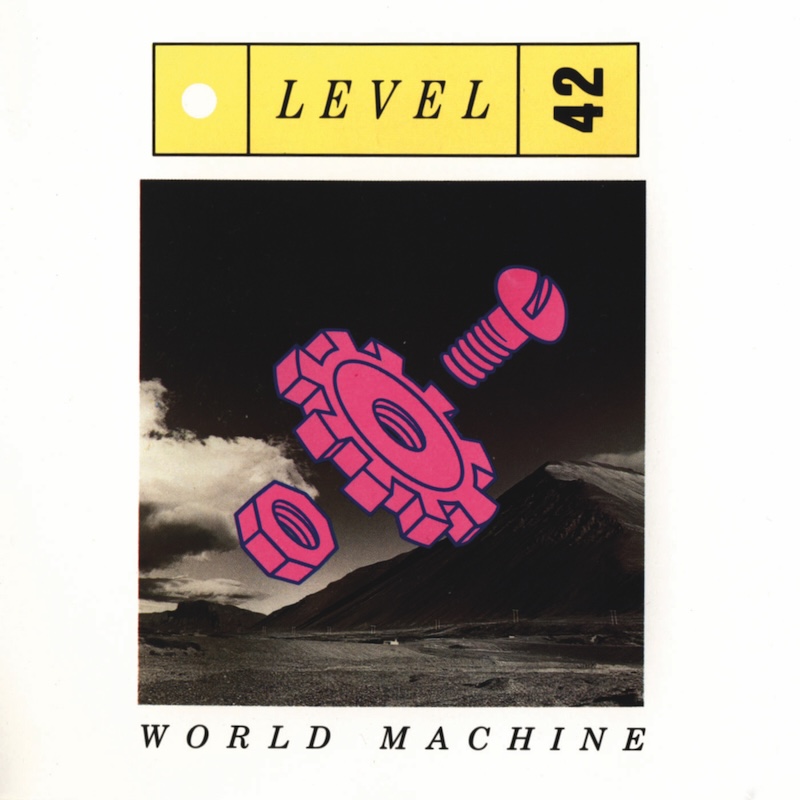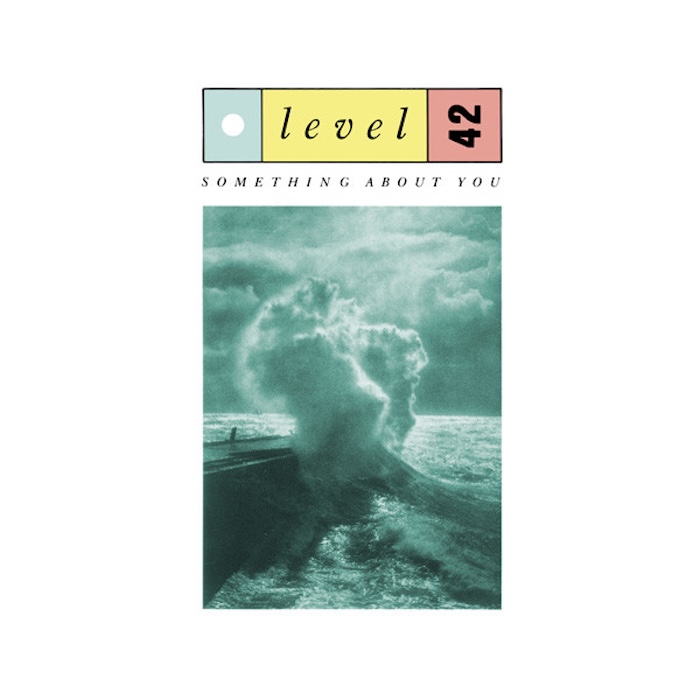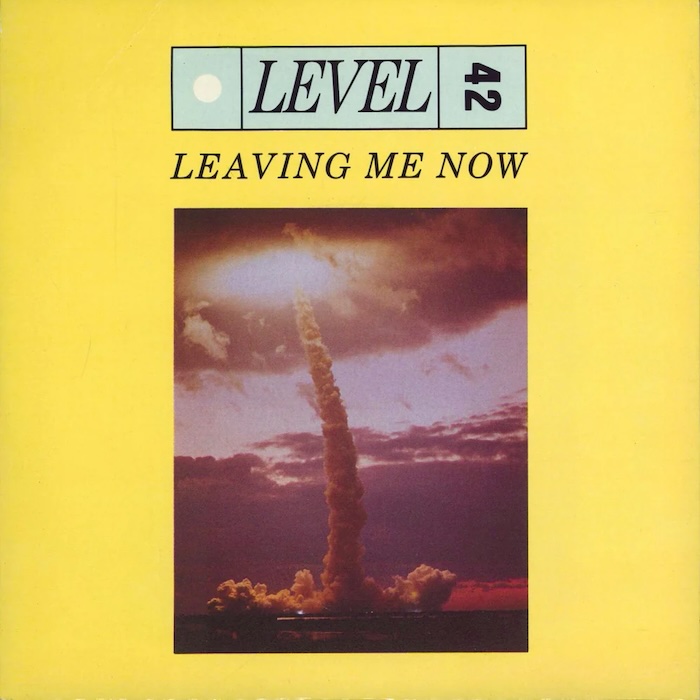Mark King and Mike Lindup discuss their commercial breakthrough and the impact global success can have on a band

Level 42’s Mark King and Mike Lindup discuss their commercial breakthrough World Machine and the impact global success can have on a band...
Mark King went to see David Gilmour play at London’s Royal Albert Hall recently. Impressed as he was, it brought home to King the varying degrees of busyness in Gilmour’s music and his own with Level 42.
“There’s so much space in David’s music, he can afford to get to two-and-a-half hours in his show without breaking sweat,” King smiles. “I bet we play 70 per cent more notes in an hour-and-a-half than David does in his show. Maybe someone can get a note-ometer out and check that. For physical exertion, playing for 90 minutes is as much as our old bones can take.”
This is the kind of easygoing rationale that’s typical of Level 42’s pioneering slap-bassist and singer. He’s serious (at least mostly) about Level 42’s music, and the impact global success can have on a young musician. Mostly, though, King is happy to chat away about anything. Joining our Zoom call slightly early, and learning that CP’s writer is just back from a holiday to Rhodes, King discusses his fascination for medieval Greek architecture while waiting for the band’s other founder member Mike Lindup.
The keyboardist seems equally chilled. Chatting to Level 42 is the definition of “This isn’t really work, is it?”
The pair’s relaxed outlook extends to discussing their tour celebrating the 40th anniversary of their breakthrough album, World Machine, which propelled Level 42 to success in the United States and established them as regulars on the British charts, rather than occasional Top 40 visitors.

Something About You
Lindup explains their agent invariably asks what Level 42’s next tour will be called “and luckily we had the 40th of World Machine for this one.” King jokes: “The tour in two years will be ‘The 42nd anniversary of World Machine’, so we can play the same set and save on rehearsal time.”
They’re particularly looking forward to revisiting songs they haven’t aired in years, having bowed to fan pressure to perform Good Man In A Storm a couple of tours ago. Coup D’État and closing ballad Lying Still are the album’s other live rarities, as King reasons: “The hardcore fans kept going on about Good Man In A Storm before we finally relented. It’s a great song but, in a hall of 3,000 people, rather than pander to five people who are really we’re happy playing Good Man In A Storm, we might as well play a song the other 2,995 people know and send them home happy.”
Once the idea of touring World Machine in full was agreed, King’s initial album research was simple: he Googled its tracklisting, realising: “It’s interesting, because the first thing that comes up on Google is the US album version, which is a bit different to the British one.”
The States replaced I Sleep On My Heart and Coup D’État for two songs from their previous album True Colours, including its biggest hit, Hot Water. As King puts it: “I looked at Google and thought, ‘Hang on, Hot Water wasn’t on World Machine, was it?’”
He’s relaxed about this record company interference. Rather than fretting about having his art ruined, King shrugs: “I don’t think the substitutions bothered any of us. They didn’t change it that much, as the guts of the album was still there.”
Dates With Madonna
It can’t be argued that World Machine was anything other than successful in North America. As well as a double-platinum monster in Britain, it reached No.18 Stateside, leading to support tours with Steve Winwood and then Madonna on the Who’s That Girl World Tour… Having first played to huge crowds with The Police four years earlier, the band were relatively serene at the prospect of playing before Madonna. “There wasn’t a lot of pressure on us,” reasons Mark King. “It wasn’t our tour. If nobody showed up, it wasn’t our fault.”
Their experience meant the band survived any resentment from fans who’d only come to see Madonna. “By that time, we had the self-confidence to know we could put on a good show,” remembers Mike Lindup.
“We were playing stadiums to people who hadn’t necessarily heard of us, or who only knew Something About You. The good thing about that is, you can get to convert people who otherwise wouldn’t have seen you.”
The biggest difficulty was that there wasn’t enough time playing actual shows, as King says:
“Madonna’s tour rolled into town and had to be set up. So you’d do a gig, then have four days off. That was the hardest part for me: how do you stay out of trouble when you’ve got four days off before your next show?”
Madonna met Level 42 at the start of the tour, a mid-tour bash and a wrap party, as Lindup says: “We didn’t see a lot of Madonna, but what I observed was that she ran a tight ship and didn’t take any shit onstage. She was huge by then and it was interesting to see. We made some notes…”

Delivering The Goods
However, in 1985, Level 42 entered the making of World Machine worrying if they’d still have a record contract at the end of it. This was the final record of their deal with Polydor, and the political funk of True Colours had only been a moderate success. It reached No.14 in the UK, while its second single The Chant Has Begun just missed the Top 40.
“True Colours did OK,” reflects King. “But it wasn’t anything that would make a record label sign you and put money into you. For World Machine, we were at a junction. If we didn’t come up with the goods, we wouldn’t get another deal, it was as simple as that. It was shit or bust. If we hadn’t had the focus to sit down and come up with good songs, forget it. But we did it.”
That focus led to a change in their songwriting. On previous albums, around a third of the songs – including Hot Water – would result from jams during recording in the studio. For World Machine, the band ensured all 10 songs were written and demoed before entering Maison Rouge studio in Fulham. “In getting the songs ready, it helped that home recording equipment had come on a lot,” recalls Lindup. “Mark had a studio at the top of his house in Streatham. It all meant we were much more prepared.”
But anxieties about the future with Polydor weren’t helped when a very early demo cassette was leaked to the label: they still aren’t sure how. Lindup remembers: “There was a question mark once Polydor heard the cassette, that: ‘Maybe this isn’t your strongest material.’ We’d thought: ‘This is going to be fantastic!’ So I was affronted when I heard Polydor’s reaction.”
The Next Level
It should be noted that the demo the label heard was of Something About You, Level 42’s first Top 10 hit, the song which broke them in the US. “For me, it’s still the best song we’ve ever written” admits King. Lindup is unusually waspish as he says: “The usual stereotypes of A&R guys not having ears are always there. As a musician, you think: ‘Of course this doesn’t sound polished, but the potential really is there.’”
Lindup and King do their best to be magnanimous decades on, explaining the demo barely had any lyrics. “We were stung by Polydor’s view,” reflects the keyboardist, adding that Something About You’s backing track became “really beefed up” while Boon Gould finished its lyrics. “Boon bringing the lyrics in is when Something About You came alive,” says Lindup. “Mark and I put the vocals down. Suddenly, the whole song went up so many levels, if you’ll excuse that word. Then the label went: ‘Sounds like a hit!’”
King had been frustrated by what Polydor initially thought on hearing the Something About You demo and how they wanted Level 42 to write more songs in the vein of Hot Water. “That had been our most recent hit,” he recounts. “Even at the time, it struck us: ‘What is it with labels, always thinking retrospectively?’ If you look through Level 42’s back catalogue, our next single wouldn’t be anything like the one before.”

Under Pressure
But King accepts not every artist can always be trusted: “You have to trust the artist at some point, but I can understand the label’s anxieties, as there are airheads who mess it up. We’d been guilty of that a couple of times in the past. Our third album springs to mind.”
Well, quite. The Pursuit Of Accidents is the band’s least favourite of their eight-year Polydor tenure. They tried to produce it themselves, only to emerge after two weeks in the studio with one 10-minute jam. The band promptly returned to working with debut album producer Mike Vernon. King laughs: “That was a big slap back from the label. Let’s call it one for the away team.”
Ironically, having subsequently worked with producers including Larry Dunn and Verdine White on 1983’s Standing In The Light, World Machine saw Level 42 return to producing an album themselves, this time successfully. “We were ready and confident. We now knew what we were doing,” reasons Lindup. “Having pre-produced the demos, we knew how we wanted World Machine to sound. We didn’t need to get a third party in to try to take it in a direction we didn’t want to go.”
The presence of long-time associate member Wally Badarou helped in the studio, both for his synth expertise and as an adjudicator if any disputes arose among the main quartet. “Wally had been involved since our first album,” says Lindup. “He had an understanding of how we all ticked differently, so he could be quite a calming influence at times.”
King adds: “We were always aware of the clock ticking in the studio. We knew that we’d got a week left in the studio and that was it, that we couldn’t book any more time there as we’d have a tour booked. It was all shoulders to the wheel. It wasn’t my band or Mike’s or anyone else’s, it was all of us. We were all responsible, and it was all our responsibility to get the damned thing done on time.”
Politicised Funk
Although Phil Gould didn’t leave until after Running In The Family, it’s known that World Machine was the start of the drummer becoming dissatisfied with their move to the mainstream. “World Machine is a credit to all of us,” insists King. “We all had a hand in it. That album, and Running In The Family, are good examples of the band understanding the game and getting on with it.
“I’m not saying everyone in the band was happy. Phil had other ideas about which way we should go. But World Machine was so successful, it helped steer the way it was going to go. You can’t turn your back on that.”
As King implies, with everyone getting their input into World Machine, it wasn’t as if uncompromising attitudes were frozen out of the band. The title track’s talk of “Don’t knock the system” furthered their shared love of science-fiction, while True Colours’ politicised funk is explicit in It’s Not The Same For Us.
Lindup describes the latter’s languid groove as masking: “A plea that we might be from different places, but we’ve arrived in the same place from respective different cultures, how that doesn’t mean we can’t get on.” CP suggests that sentiment still sounds resonant today. “Exactly,” he smiles. “It is. But that’s without naming any names. The person we’re probably both thinking about has far too much airtime as it is.”
Mission Statement
With such a taut, accessible album ready to go, success duly followed. It helped that Something About You arrived with an enigmatic video starring Cherie Lunghi. “Cherie had just finished filming The Mission with Robert De Niro and Jeremy Irons,” laughs Lindup. “Now she’s with four musicians trying their best to be actors. The video got a lot of attention. It puzzled people, but in an intriguing way. To quote our American record label: ‘Who is that clown figure? What’s all this about?’”
The next 18 months saw Level 42 “suddenly become huge” as King puts it, adding: “We were hopping around the world like nobody’s business. We were whizzing about on planes so much that it made your head spin. That was incredibly exciting. So many doors opened for us.”
The years of prior graft helped prevent losing the plot once success arrived. As Lindup rationalises: “By the time private planes and limousines were being laid on, it was obvious it was happening because we’d sold a lot of records, rather than thinking: ‘I must be a very important person.’” King was glad it helped cement a new deal with Polydor, saying: “We weren’t one-hit wonders. There were four years of music before World Machine, so we were a pretty good gamble to re-sign.”
Polydor promptly renewed Level 42’s deal and Running In The Family followed 18 months later. By then, doubts that Something About You being a dead end were long forgotten, at least by the record company. “We’d been questioned about our integrity and instincts,” summarises Lindup. “After going through that trial, I felt really proud of the album.”
King is even more succinct in looking back on Level 42 breaking through into the mainstream: “The trials to get the flipping album released in the first place were immense. They get forgotten. History only remembers that it was really successful.”
Follow Level 42 here
Featured image credit: Tina Korhonen
Subscribe to Classic Pop magazine here
Classic Pop may earn commission from the links on this page, but we only feature products we think you will enjoy.


